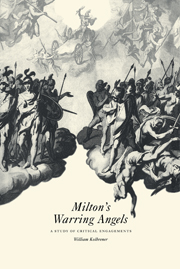1 - “Plainly partiall”: the liberal Areopagitica
Published online by Cambridge University Press: 23 November 2009
Summary
In considering the “spiritual architecture” of an England overflowing with “schismaticks and sectaries,” Milton in the Areopagitica compares the “great reformation” of a nation to the building of Solomon's temple: “And when every stone is laid artfully together, it cannot be united into a continuity, it can but be contiguous in this world … (II 555). There may be “many dissections in the quarry,” many “schisms” and differences “among men … ere the house of God can be built,” Milton writes. But he continues, paradoxically, “the perfection consists in this”: “Out of the many moderat varieties and brotherly dissimilitudes … arises the goodly and gracefull symmetry that commends the whole pile and structure” (II 555). From out of the contiguity and particularity intrinsic to the fallen world, Milton perceives at least the possibility of “continuity,” a “perfection” organizing and ordering difference.
Milton's temple trope, like the totality about which T. W. Adorno writes in his Aesthetic Theory, preserves particulars even “in their diffuse, divergent and contradictory condition.” For Adorno, the demand for “unity” does not merely assimilate particularity, but it also, crucially, preserves “the individual moment.” Within the context of Adorno's negative dialectics, as in Milton's Areopagitica, the concrete maintains its own integrity, though it also reveals “the ever-elusive entirety in itself … in line with a pre-established disharmony rather than a pre-established harmony.” As Edward Tayler writes, by both stressing “juxtaposition” and moving “toward identity,” Milton's temple trope balances the tensions of “differences” maintained “in agreement.” Milton's reformed England, therefore, establishes its “goodly and graceful symmetry” through “brotherly dissimilitudes,” at once mediating and preserving the differences it must acknowledge.
- Type
- Chapter
- Information
- Milton's Warring AngelsA Study of Critical Engagements, pp. 11 - 27Publisher: Cambridge University PressPrint publication year: 1997



